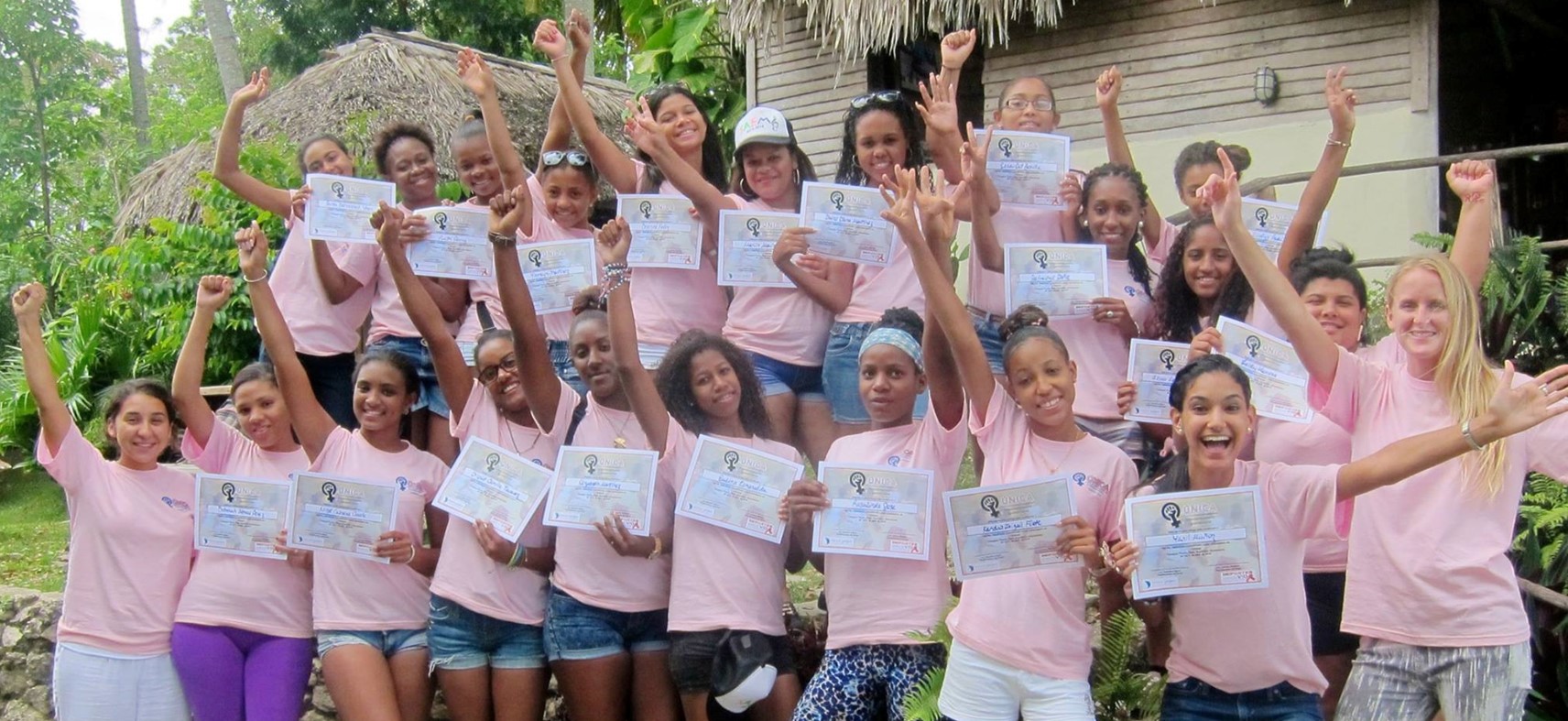
Mission
DREAM’s mission is to enable all children and youth in the Dominican Republic (DR) to have equal opportunities to learn and realize their full potential. DREAM believes that learning changes lives. Its transformative education programs extend from early childhood through young adulthood, empowering at-risk children and youth to create a better future for themselves and their families to break the cycle of poverty.
Life Challenges of the Women Served
Although the World Bank describes the DR as an upper-middle income country, its income inequality is one of the worst in the Latin American and Caribbean (LAC) region: 50.1 percent of the income is concentrated in the richest 20 percent of the population, while the income-share held by the lowest 20 percent is only 5.8 percent, and 2.8 percent of the population lives in poverty. Income inequality creates barriers to educational opportunities and social mobility, particularly for people in lower socio-economic classes – the target population of DREAM’s programs. Many of the youth in the DR are unable to reach their full potential due to low levels of education and high levels of poverty. In 2015, only 34.87 percent of the population over the age of 25 had completed upper secondary school, and 12.38 percent had completed post-secondary.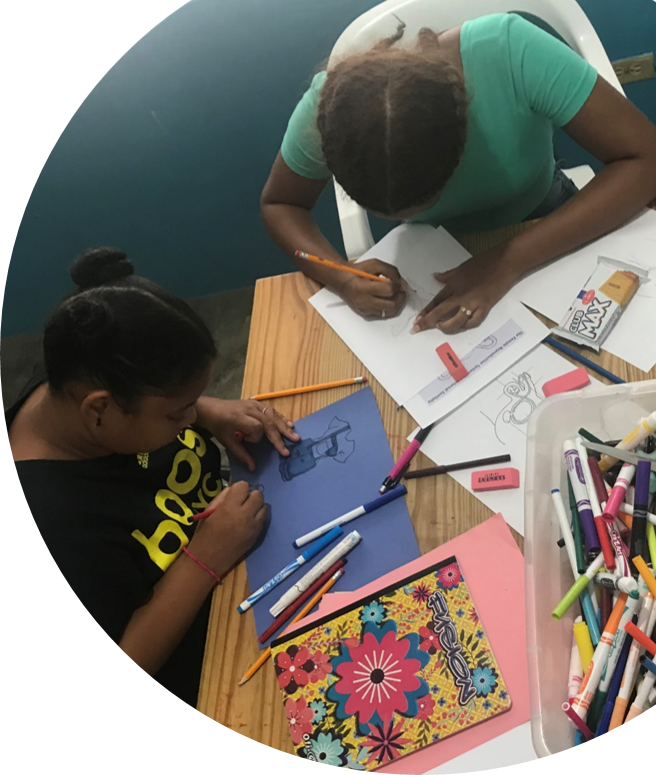
The DR consistently falls in the highest category of risk regarding girls’ and women’s sexual and reproductive health. There is a widespread lack of accurate information, and no access to comprehensive, scientifically accurate, age-appropriate sexual and reproductive health education in the Dominican school system.
The DR is currently first in LAC in early unions and marriages. Twelve percent of women between the ages of 20 and 24 were married or in a union before the age of 15, and 36 percent before the age of 18. Much higher proportions exist in the poorest quintile, where 51.7 percent of women between 15 and 19 years old reported being or having been married or in a union. The DR also has the highest rates of adolescent fertility in LAC. Pregnancy, child marriage, and motherhood exclude girls and women from schools. Between 2018 and 2019, the number of victims of human trafficking doubled. In their lifetime, 28.5 percent of girls and woman ages 15 – 49 in the DR have experienced intimate partner physical (IPV) and/or sexual violence at least once.
The Project
The purpose of this project is to successfully implement and monitor the new Única App for adolescent girls (ages 12 – 18) and women. DREAM’s existing Única program seeks to dismantle traditional gender norms and develop girls’ and women’s skills in leadership, critical thinking, problem solving, and communication. The original program trains adolescent girls and young women in a specifically designed, culturally relevant curriculum consisting of 10 activities focused on sexual education and female empowerment. With the advent of COVID-19, the in-person program was halted, and the need for an alternative approach was urgent. The Única App is an innovation in the Única program that allows for the existing curriculum to be transformed into dynamic, digital content that Dominican girls and women can access anywhere.
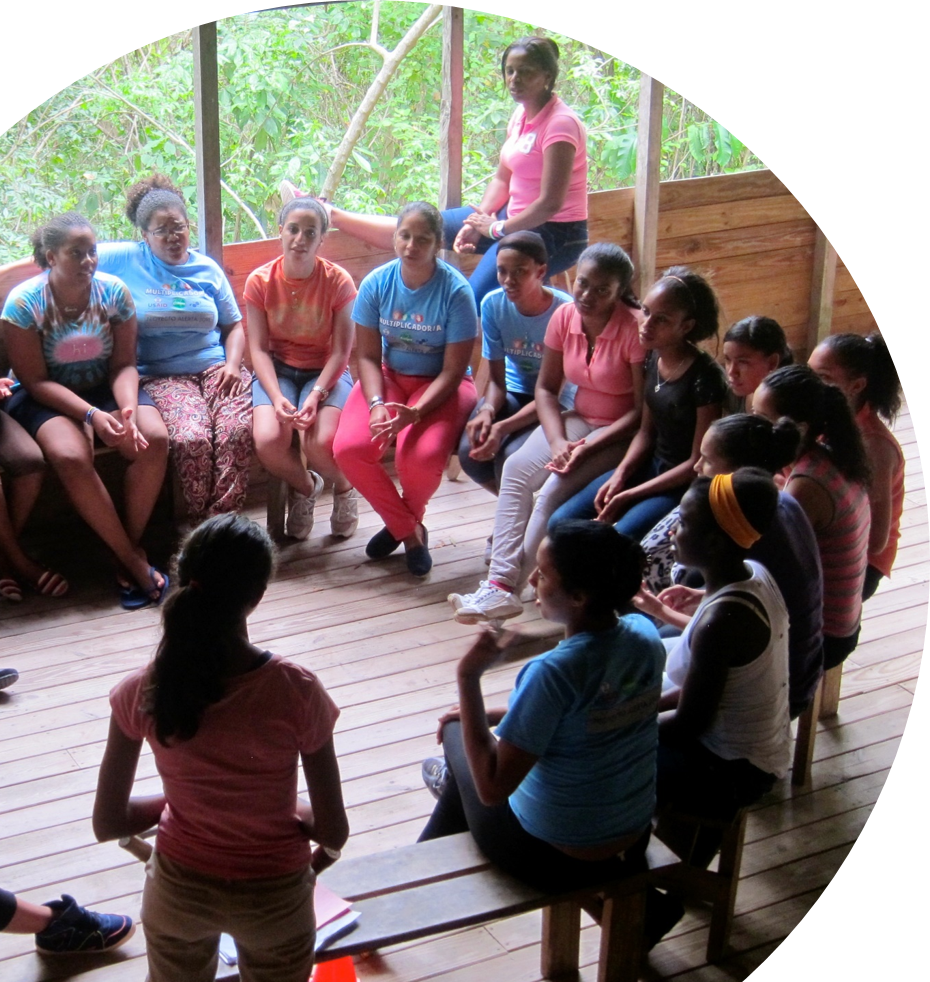 The Única App will provide girls and young women across the DR with the information necessary to be able to exercise their sexual and reproductive rights, make autonomous decisions about their sexual health, and gain self-confidence so that they can be better equipped to make good decisions and cultivate healthy relationships. The Única App curriculum is specifically designed to be accessible and relevant for girls and young women, with modules organized by their age and knowledge level. All modules include points of interaction (such as an option to talk with a trainer through What’s App or with a peer or parent to further engage with the topic). For every written piece, audio clips are provided to ensure reach to all young people, regardless of literacy level and learning style. The App will be launched with a marketing and community-outreach campaign targeted at girls and young women.
The Única App will provide girls and young women across the DR with the information necessary to be able to exercise their sexual and reproductive rights, make autonomous decisions about their sexual health, and gain self-confidence so that they can be better equipped to make good decisions and cultivate healthy relationships. The Única App curriculum is specifically designed to be accessible and relevant for girls and young women, with modules organized by their age and knowledge level. All modules include points of interaction (such as an option to talk with a trainer through What’s App or with a peer or parent to further engage with the topic). For every written piece, audio clips are provided to ensure reach to all young people, regardless of literacy level and learning style. The App will be launched with a marketing and community-outreach campaign targeted at girls and young women.
The main themes explored in the App are:
- Gender roles and gender-based violence
- Sexual and reproductive health
- Human rights
- Diversity and inclusion
- Financial literacy
- Job hunting and etiquette
The App will be free for download. DREAM will also make the digital content publicly available on their website as an open educational resource. Other teachers, educators, and youth trainers can access the materials and use them in face-to-face or blended learning models.
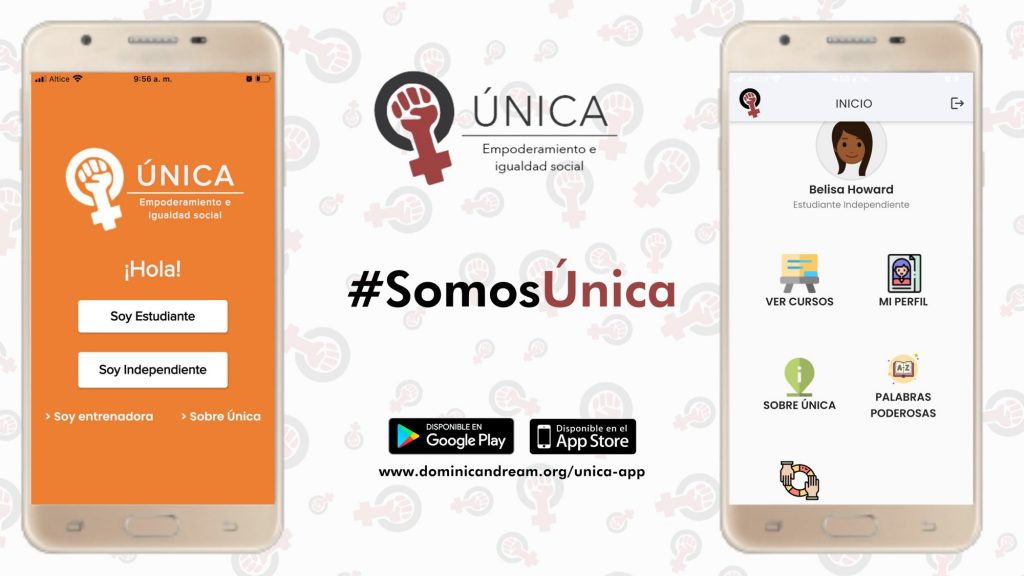
This project will improve knowledge about sexual and reproductive health, equip women and girls with skills to make healthy decisions, and foster gender-equitable attitudes. This culturally relevant, digital curriculum will improve accessibility across DREAM’s partner communities throughout the Dominican Republic to shift attitudes and bring about cultural change.
2,610 direct beneficiaries (girls and women)
8,351 indirect beneficiaries (family members, neighbors, friends, and partners of the girls and young women who use the App)
UN Sustainable Development Goals
![]()
![]()
![]()
![]()
Questions for Discussion
How can the emergence of digital technologies change the landscape of global healthcare?
How does gender inequality affect healthcare?
Can quality assurance and safeguarding be assured with digital apps?
What other creative strategies could be used to reach adolescents?
What are the benefits of digital vs. traditional learning approaches?
How the Grant Will be Used
Together Women Rise’s grant of $31,614.86 will help fund the following:
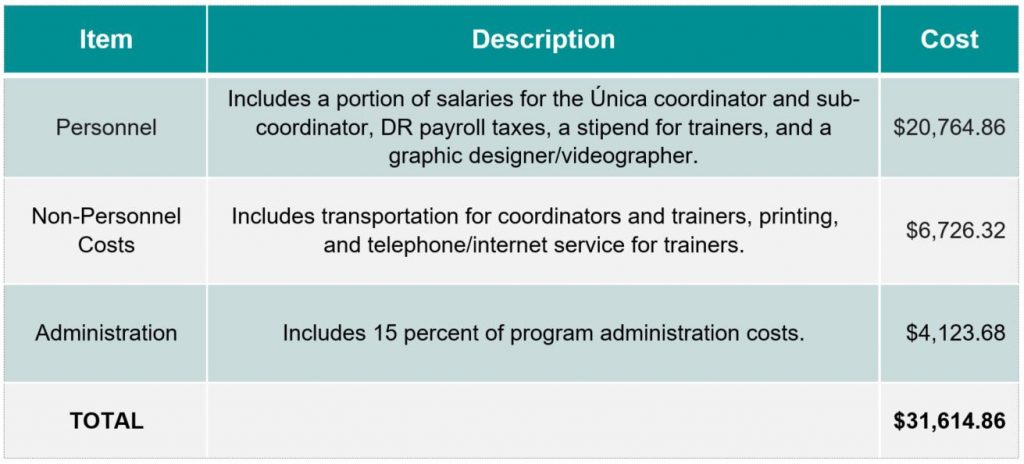
Why We Love This Project/Organization
We love this very ambitious, innovative, collaborative project using modern tools to reach young people where they are. DREAM sought the participation of youth in developing the audio and video content for their mobile app to be accessed by a diverse audience using different modalities. The topics and information covered are current, timely, and at times include taboo topics that communities find hard to discuss openly. In the present climate of the COVID-19 pandemic, this is a safe space for girls to learn and interact privately and independently.
Evidence of Success
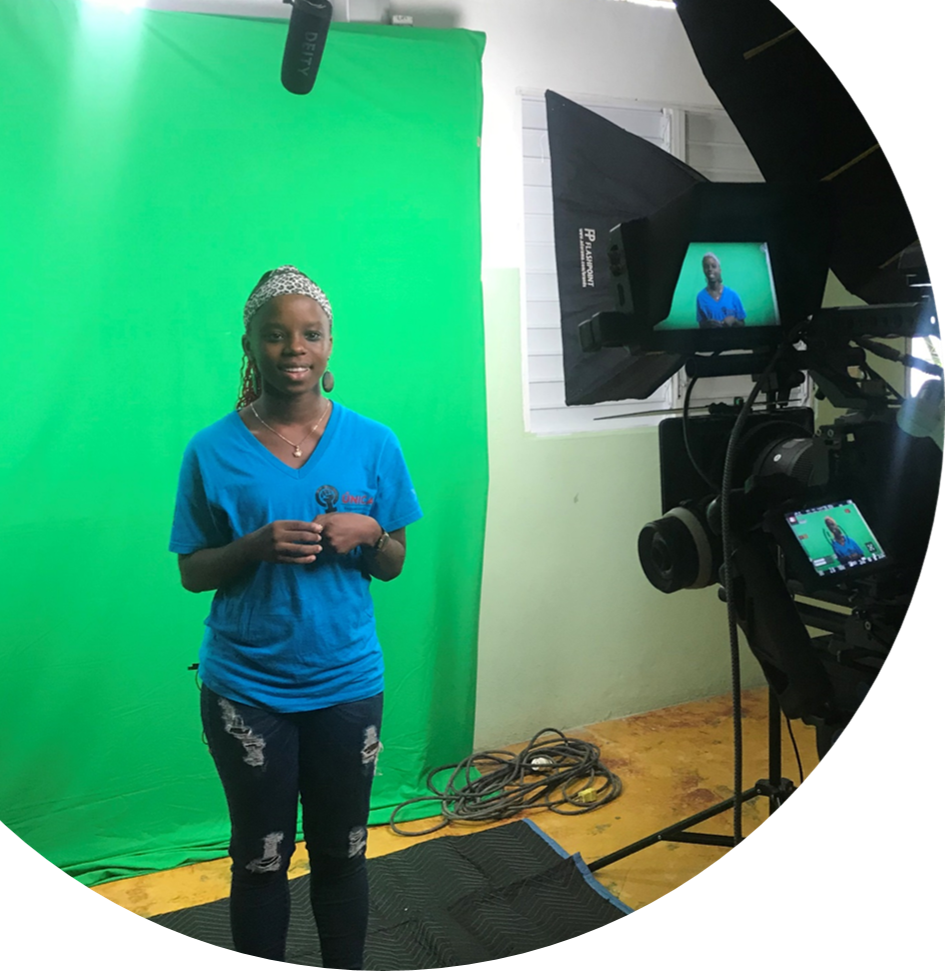 DREAM operates in 27 separate communities throughout the DR. It now provides literacy, youth development, and community programs, global connection groups, a Montessori Academy, and The Bachata Academy – which is the only music program in the world that focuses on teaching bachata and merengue, genres integral to Dominican culture.
DREAM operates in 27 separate communities throughout the DR. It now provides literacy, youth development, and community programs, global connection groups, a Montessori Academy, and The Bachata Academy – which is the only music program in the world that focuses on teaching bachata and merengue, genres integral to Dominican culture.
Some examples of DREAM’s success include 687 participants in 13 schools reached with the literacy programs, with 92 percent of students increasing their reading level by 1.5 grade levels. Over 24,000 books have been distributed to over 2,500 students at book fairs. There are 524 active students in nine communities enrolled in the Montessori Academy, with an 85 percent daily attendance rate. The youth development program has 1,414 youth participants. Seventy-three percent of the workforce development program graduates are working or back in school after one year in the program.
DREAM developed the Única program in 2015. Única was developed for girls only, and seeks to address the high rate of early pregnancy in the country. Única uses sports games and dynamic activities to teach about the following topics: self-esteem, healthy relationships, reproductive organs, prevention of early pregnancy and sexually transmitted infections, prevention of violence, and equity, among others.
Since the pilot program was launched in January 2015, Única has reached more than 1,200 participants and trained 90 young leaders (trainers) in their communities to deliver the programs. Única is aimed at girls from 12 to 18 years old who are empowering themselves to teach the topics of the curriculum and cause a positive impact in their communities.
In March 2020, all programs were canceled due to the great impact of the COVID-19 pandemic. As a result of this, in July 2020, DREAM – thanks to the sponsorship of the Canadian Embassy in the Dominican Republic – started the development process for the Única App.
Voices of the Girls
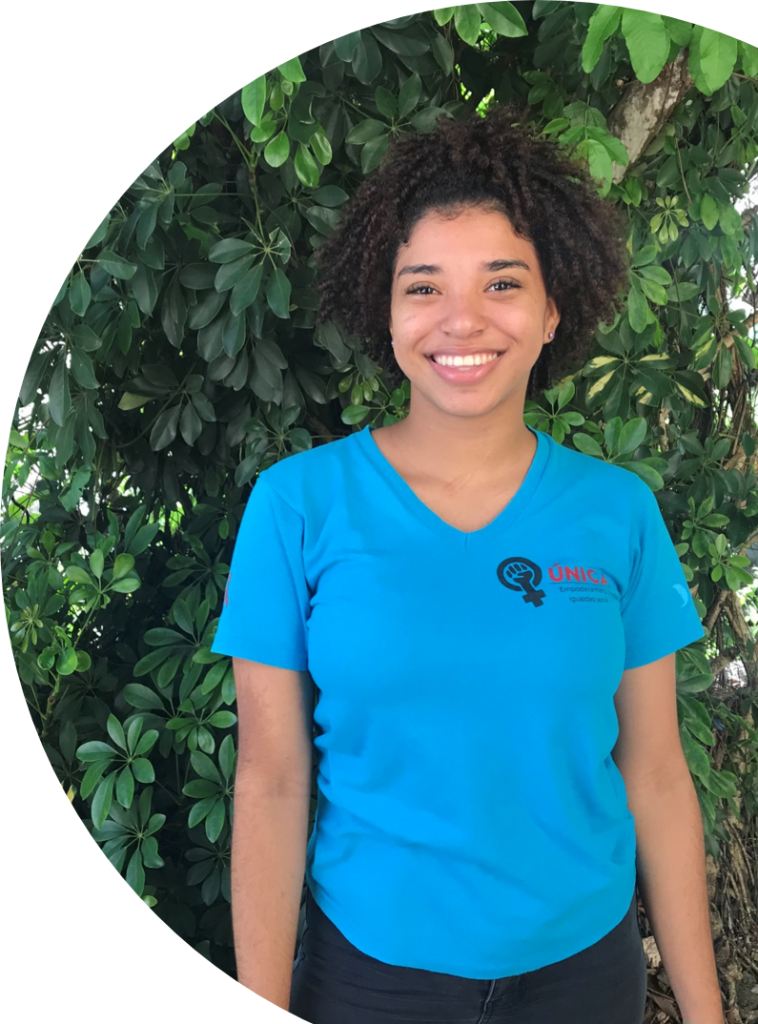 Hi, I’m Danily. I’m 18 years old, and I’m from Cabarete. I have known DREAM since I was little, and I got to know the Única program through my older sister. Participating in the development of the Única App has been incredible for me, because there are many girls who do not have the necessary guidance at home or someone to talk to about sex education…with the App they are learning from us. It makes me feel very happy. I hope that this application reaches each and every one of the communities in the country and that the girls who take this virtual program multiply their knowledge and apply it in their personal, social and professional life, since this knowledge will serve them for the rest of their lives.
Hi, I’m Danily. I’m 18 years old, and I’m from Cabarete. I have known DREAM since I was little, and I got to know the Única program through my older sister. Participating in the development of the Única App has been incredible for me, because there are many girls who do not have the necessary guidance at home or someone to talk to about sex education…with the App they are learning from us. It makes me feel very happy. I hope that this application reaches each and every one of the communities in the country and that the girls who take this virtual program multiply their knowledge and apply it in their personal, social and professional life, since this knowledge will serve them for the rest of their lives.
I am Daisy, and I am 16 years old. I am from the Cabarete community. I got to know the Única program through the summer camps, where I acquired knowledge that I later wanted to share with the girls in my community, since I know that they face many difficult situations. That is why I became interested in participating in the Única App. I would like that the girls be oriented and feel good about the topics and that they feel supported by the coaches. I would like the girls to grow up such that they can develop self-esteem and that they learn to value themselves, that they have no limits and that they realize how valuable and wonderful they are.
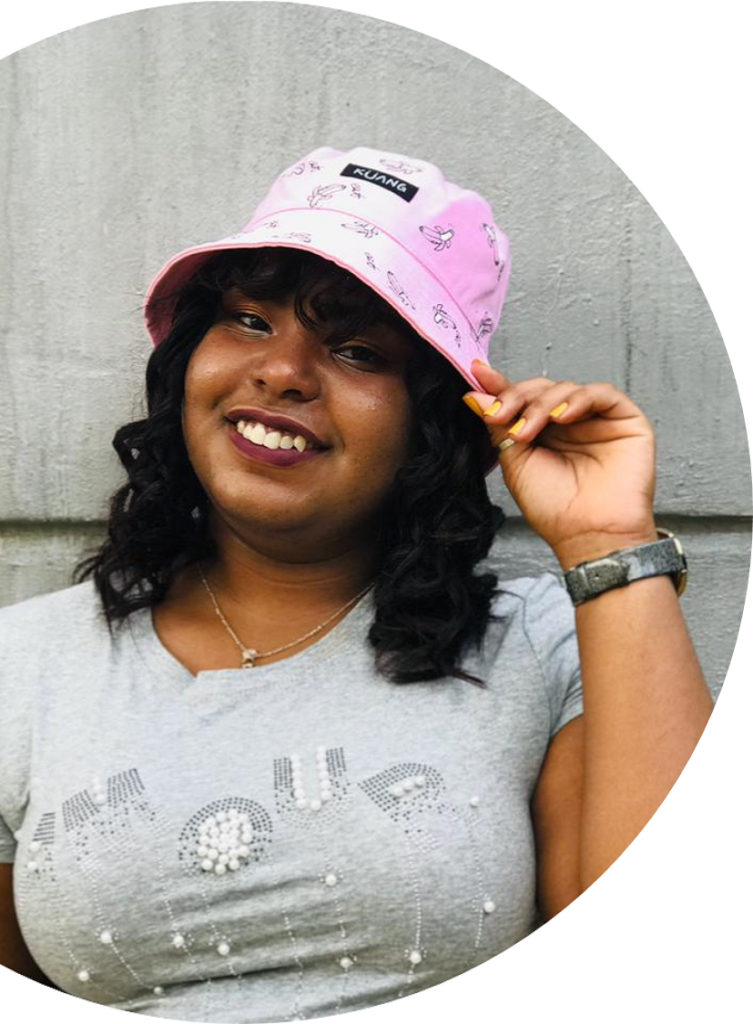 My name is Carolina, and I am 19 years old. I got to know the Única App through a Youth Network to which I belong…I was interested in participating, since it is an App through which you can educate yourself. With the App, I have learned that we can educate and bring good messages to more people by being creative, and that I am a unique girl. I loved some aspects where vital issues for us girls were highlighted, such as self-esteem. My advice to the other girls is to try the App so that they are also part of it.
My name is Carolina, and I am 19 years old. I got to know the Única App through a Youth Network to which I belong…I was interested in participating, since it is an App through which you can educate yourself. With the App, I have learned that we can educate and bring good messages to more people by being creative, and that I am a unique girl. I loved some aspects where vital issues for us girls were highlighted, such as self-esteem. My advice to the other girls is to try the App so that they are also part of it.
I am Halina; I am 19 years old, and I am from the Imbert community. I found out about the Única App through Youth Networks, a DREAM program. What I liked the most about the App is its dynamism and how beautiful it was to launch. I have learned a number of things that I was not aware of: I learned to differentiate many cases of violence of which I had no idea, to qualify many rights that I did not take into account, about STIs… Each unit of the App has given me a lot of significant learning. I recommend that all girls download it, because it is a very productive App, and they will not regret having it on their devices, as it will clarify many things and create awareness in them about various important issues.
About the Organization
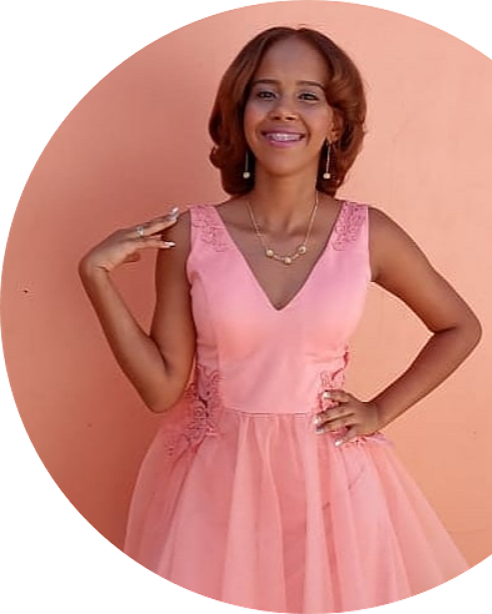 In 1995, DREAM founder Michel Zaleski brought a group of Dartmouth College students to the North Coast of the Dominican Republic to run educational activities to supplement teaching at two local public schools. As word of the work and its positive results spread, additional donors became inspired to construct classrooms, libraries, and bathrooms to support the new volunteers’ efforts. With the understanding that the public education system would continue to need support, DREAM built its own facilities and registered as both a US and Dominican non-profit, formally establishing itself in 2002.
In 1995, DREAM founder Michel Zaleski brought a group of Dartmouth College students to the North Coast of the Dominican Republic to run educational activities to supplement teaching at two local public schools. As word of the work and its positive results spread, additional donors became inspired to construct classrooms, libraries, and bathrooms to support the new volunteers’ efforts. With the understanding that the public education system would continue to need support, DREAM built its own facilities and registered as both a US and Dominican non-profit, formally establishing itself in 2002.
Today, DREAM has grown from one small community on the North Coast to 27 throughout the country, educating more than 8,000 children, youth, and young adults through a variety of innovative programs. DREAM offers literacy, early childhood education, youth leadership, the Bachata Academy and community programs to ensure that all children and youth within their partner communities never lack access to necessary resources again.
Where They Work
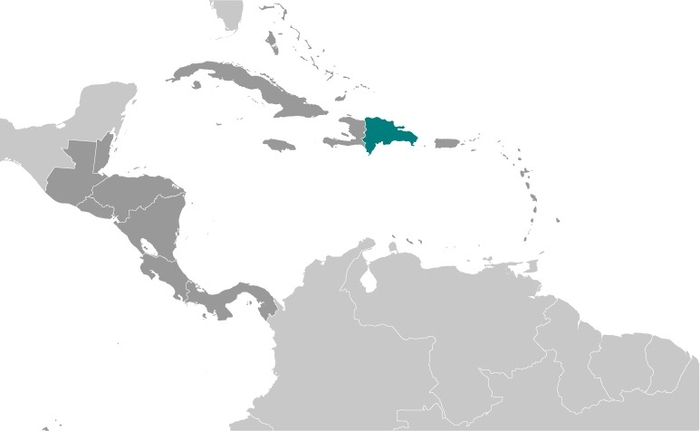
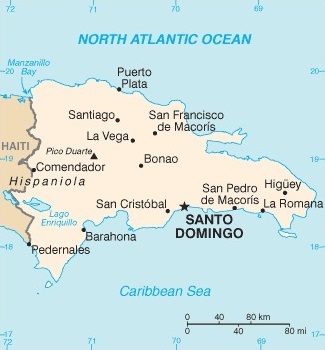
The Dominican Republic (DR) is located between the Caribbean Sea and the North Atlantic Ocean, east of Haiti. Its population is 10,597,348 million (July 2021 est.), with a median age of 27.9 years. It is divided into 31 provinces and one National District, which are further subdivided into 158 municipalities and 231 districts. Overall, the country is divided into three macro-regions: Cibao, South, and East. The DR is surrounded by two bodies of water, the Atlantic Ocean on the North Coast and Caribbean Sea on the South. The DR shares the island Hispaniola with Haiti.
The birth rate is 18.24 births/1,000 population (2021 est.). Mother’s mean age at first birth is 21.3 Years (2013 est.). The maternal mortality rate is 95 deaths/100,000 live births (2017 est.). Infant mortality is 21.68 deaths/1,000 live births. The literacy rate is 93.8 percent for both men and women.
The DR is a tourist-dependent country. From 1985-2018, the DR had a real GDP growth rate of 4.9 percent, and, in 2017, tourism receipts equaled 9.5 percent of GDP, the highest in Latin America. The country is best known for its beaches, especially its resorts in Punta Cana. Additionally, on the North Coast, there are many beautiful beaches in the Puerto Plata and Samaná provinces and, on the South Coast, in Boca Chica and Juan Dolio that attract both local and international tourism.
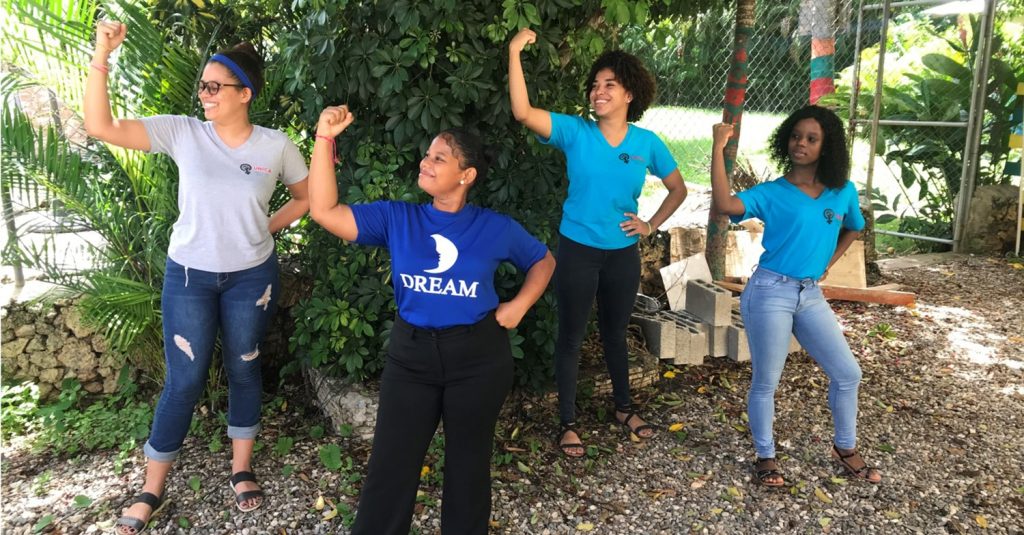
A closer look at creating a safe space for adolescent SRH education
Adolescents have one of the highest rates of unmet need for family planning. Complications from pregnancy, childbirth, and unsafe abortion are a leading cause of death for young women ages 15 to 19. When young women give birth, there is also increased risk of death and disability to their newborns. Sexual violence among adolescents, especially in humanitarian emergencies, also continues to pose significant risks.
Although there has been momentum in implementing sexual and reproductive health (SRH) services in most countries, young people typically remain underserved by these services. Even when young people can access services, they may feel embarrassed, face stigma on sexual matters, or have concerns about judgmental providers.
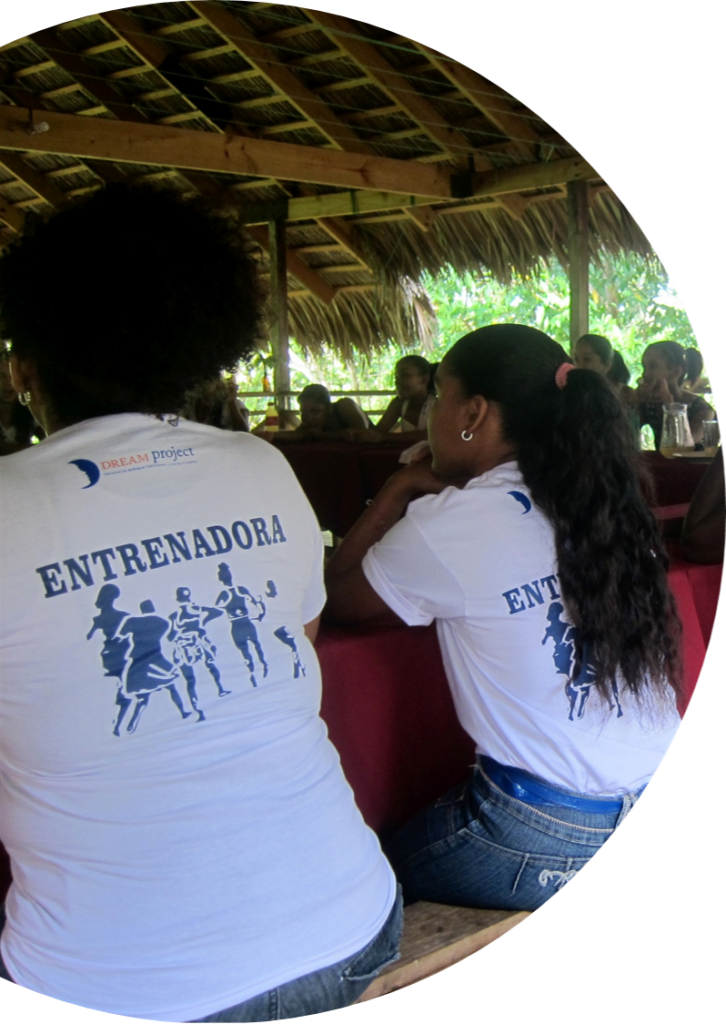 The use of digital platforms is an increasingly popular approach for achieving health objectives, particularly among adolescents and youth. As young people become increasingly engaged with digital spaces – more than 70 percent of the world’s youth ages 15 – 24 are online – it is not surprising that many are turning to digital sources to seek information about bodies, sex, and relationships. This new reality comes with both opportunities and challenges.
The use of digital platforms is an increasingly popular approach for achieving health objectives, particularly among adolescents and youth. As young people become increasingly engaged with digital spaces – more than 70 percent of the world’s youth ages 15 – 24 are online – it is not surprising that many are turning to digital sources to seek information about bodies, sex, and relationships. This new reality comes with both opportunities and challenges.
Digital spaces offer an emerging platform where some elements of sexuality education can be made more accessible, engaging, and interactive for young people. They also offer a potential avenue to complement traditional classroom delivery of comprehensive sexuality education with resources aimed at supporting educators. At the same time, quality assurance is a challenge, and, in venturing into digital spaces to seek information, young people will come across a range of content, some of which may be incomplete, poorly informed, or harmful. Educators, healthcare workers, and digital content managers are faced with a delicate balance between leveraging the potential of the digital spaces for delivery of quality content that reaches a diverse population of young people, and the responsibility to ensure that young people are equipped with the skills to critically engage with the content they encounter.
Delivering education effectively cannot be achieved simply through bringing in technology. Creating a safe space for adolescent SRH education needs to combine the use of digital technologies with input from educators, healthcare workers, adult role models, and young people themselves to tailor an approach to the specific needs of the population.
Source Materials
